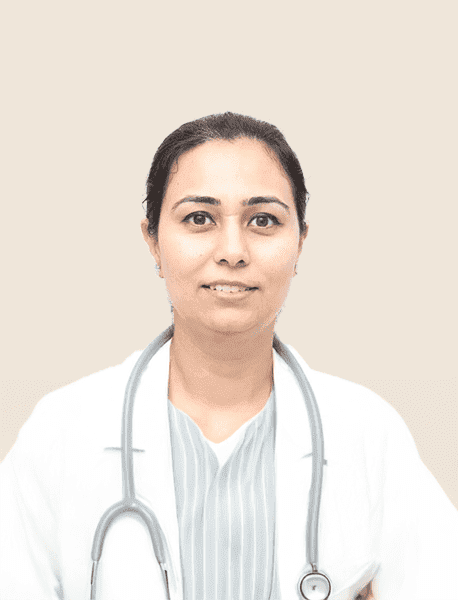Ovarian Cysts
Ovarian cysts are fluid-filled sacs that develop on or inside a woman’s ovaries. Most cysts are non-cancerous (benign) and form naturally during the menstrual cycle, often resolving on their own without treatment.
Best Doctor for Ovarian Cyst Removal

Dr. Sunita Mor
MBBS, MS - Gynaecology

Dr. Anshika Lekhi
MBBS, MS, Mch

Dr. Surbhi Gupta
FNB, MBBS, MS- Gynecology

Dr. Sunita Mor
MBBS, MS

Dr. Anshika Lekhi
MBBS, MS, Mch

Dr. Surbhi Gupta
FNB, MBBS, MS - Gynaecology
Who Is Eligible for Ovarian Cyst Removal Treatment?
Ovarian cyst removal is usually recommended when cysts are large, persistent, painful or suspicious for cancer. You may be a candidate if:
- The cyst is larger than 5 – 10 cm.
- It causes pelvic pain, bloating or pressure.
- It does not resolve after several menstrual cycles.
- Imaging or tumour markers suggest malignancy.
- There is a ruptured cyst or ovarian torsion.
- Endometriomas or polycystic ovaries are causing infertility or pain.
Women who are approaching menopause or are post-menopausal are more often advised to have cysts removed to rule out cancer risk.
How Is the Ovarian Cyst Removal Procedure Done?
Cysts are generally removed via laparoscopy or, for larger or suspicious masses, open surgery:
- Laparoscopic Cystectomy (minimally invasive): Small abdominal incisions and a laparoscope allow the surgeon to excise the cyst—preserving the ovary when possible. Recovery is quicker with less pain and scarring.
- Laparotomy (open surgery): A larger incision is used for very large cysts or when cancer is suspected; the cyst or the entire ovary may be removed.
Both procedures are performed under general anaesthesia. Most patients go home the same day after laparoscopy, or within 2 – 3 days after open surgery. Full recovery typically takes 1 – 4 weeks, depending on the technique used.

Don’t Hesitate To
Contact Us
In urgent situations, you can count on us. Learn more about our emergency services and the specialized care we provide around the clock.

Call Us - 9220472227
FAQ About Ovarian Cysts Removal Treatment
Are ovarian cysts dangerous?
Most ovarian cysts are benign and harmless. However, large or persistent cysts, or those causing severe symptoms, may need medical or surgical treatment.
Can ovarian cysts affect fertility?
Most cysts don’t affect fertility. However, cysts caused by endometriosis or polycystic ovary syndrome (PCOS) can interfere with ovulation and conception.
How are ovarian cysts treated?
Many cysts resolve naturally. Others may require hormonal treatment or surgical removal if they are large, painful, or suspicious in nature.
Do ovarian cysts cause cancer?
While most ovarian cysts are non-cancerous, a small percentage may be malignant, especially in postmenopausal women. Regular follow-up and imaging are important if risk factors are present.
What causes ovarian cysts?
They are commonly caused by hormonal fluctuations, ovulation, pregnancy, or conditions like endometriosis or PCOS.

